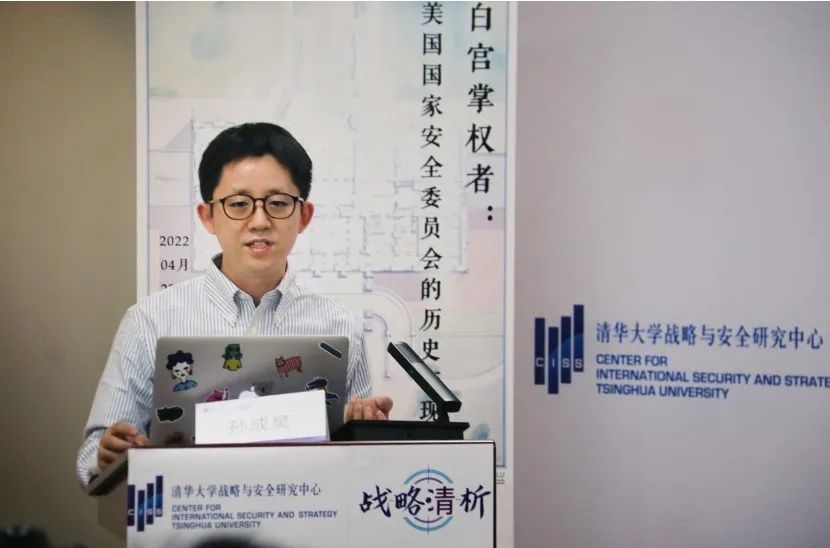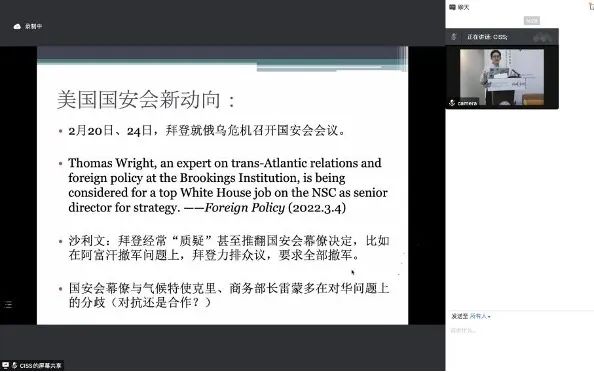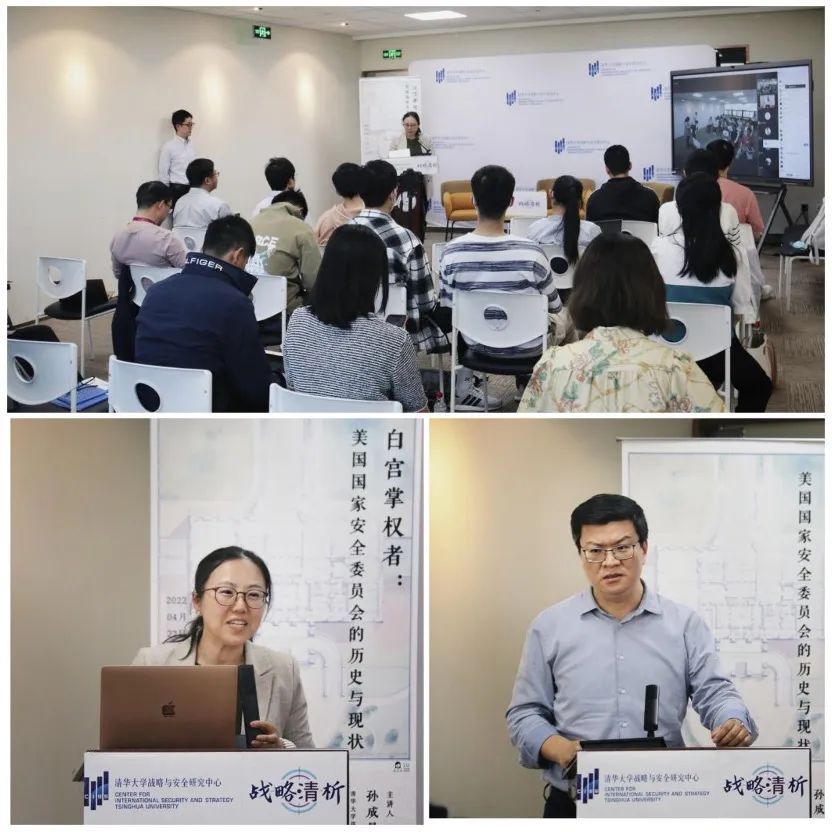
In the afternoon of April 22, the Center for International Security and Strategy (CISS) of Tsinghua University held the inaugural StratFocus Forum in a hybrid onsite/virtual format, bringing together an online audience of more than 200 people. Entitled “Those in charge of the White House: the past and present of the National Security Council,” the event featured CISS Fellow SUN Chenghao as the key speaker, as well as XIAO He, associate fellow at the Institute of World Economics and Politics, and YANG Nan, assistant research fellow at the Institute of American Studies, both at the Chinese Academy of Social Sciences. The panelists explored the history, mechanism, role and limitations of the National Security Council (NSC). CISS Director DA Wei shared his comments on the discussion, which was moderated by XIAO Qian, deputy director of the Center.

Using five key questions, Dr. Sun Chenghao explained the importance of the analysis on the NSC—a dedicated staff for the US President, one of the many actors influencing America’s foreign policy decision making, and the “central nervous system” of the White House that coordinates the interests of domestic departments and policy proposals. He also gave a historical account on the evolving character and role of the NSC since its inception in 1947.

During the George H. W. Bush presidency, the NSC eventually established the more stable “Scowcroft Model” after a long period of exploration and adjustment, and has recently been repositioned by the Biden administration as an “honest broker” for decision-making coordination after Trump’s destabilization of the White House’s internal decision making system, Dr. Sun noted.

The other two panelists also shared their insights on the NSC. The institutional development of the NSC is based on its own organizational and political logic, Xiao He pointed out. To serve as a forum for decision making coordination amidst the “court politics” at the White House, the NSC needs significant power, but it also needs to include more political groups into the mechanism in order for it to truly coordinate the departments and provide adequate information and decision making advice to the president, which will complicate the distribution of power and push the agency to grow larger and more hierarchical. Samuel Huntington once contended that “modernity breeds stability, but modernization breeds instability”—and this is just like that. The pivots in the design of the NSC mechanism are often related to US presidents’ desires for major foreign policy reorientation, serving their own policy shift goals.

Although the NSC was established during the Cold War, it is essentially the result of a policy tug-of-war across US departments, as it pursues a dynamic balance between “humanizing” and “institutionalizing” decision making, Yang Nan believes. He also suggested that the role of “honest broker” is more like an ideal standard, which is difficult to achieve in practice, because NSC officials are often unable to remain neutral with no policy preferences. For example, there have been frequent policy divergences between National Security Advisor Jake Sullivan and Trade Representative Katherine Tai in the Biden administration, revealing the misalignment between the US economic and security policy teams. The panelists then took questions from the onsite and online audiences after their presentations.

Professor Da Wei wrapped up the forum with his comments on the panel discussion, recognizing the insightful yet easy-to-understand presentations of the three young scholars on the NSC, which can be studied from diverse perspectives, including vertical and horizontal decision making, decision making cliques and bureaucratic decision making mechanisms, the securitization and weaponization of national issues, etc. Speaking of the positioning of the CISS Focus Forum, he expressed the expectation that it will celebrate the academic strengths of Tsinghua, let young talents shine, and pursue a clear strategic focus with thorough, in-depth and solid research.

About CISS StratFocus Forum:
The CISS StratFocus Forum is launched by the Center for International Security and Strategy of Tsinghua University, with the objective of fostering more talents and building an academic community on security and strategy. The forum, which will be held monthly, aims to serve as an academic exchange platform for students and young scholars in the fields of strategy, security, international relations and diplomacy, where they will be invited to discuss international hotspot issues and cutting-edge research in their disciplines.
